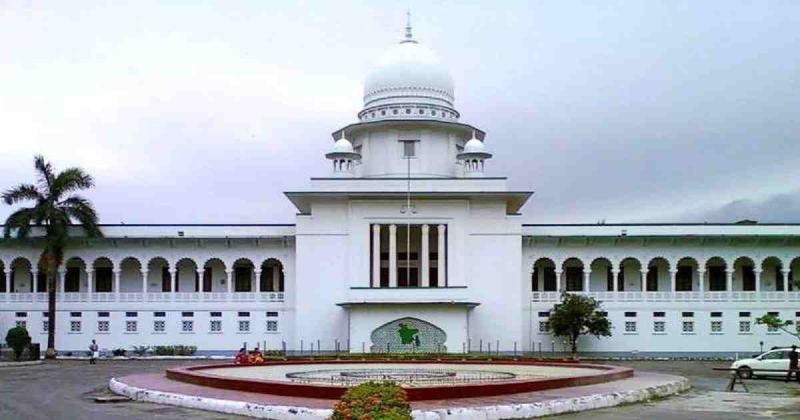- US Issues Travel Alert for Bangladesh Ahead of Election |
- Air ambulance carrying bullet-hit Hadi flies for Singapore |
- Can Dhaka’s arms recovery drive ensure peaceful polls? |
- ‘Unhealthy’ air quality recorded in Dhaka Monday morning |
- BD peacekeepers' deaths: UN chief calls Dr. Yunus, offers condolence |
HC rules against 15th amendment: No bar to caretaker govt

The High Court
Dhaka, Dec 17 - The High Court has observed that the Fifteenth Amendment to the Constitution of Bangladesh contradicted its fundamental framework and rendered key democratic principles compromised, emphasising that there is no legal bar to reinstating the caretaker government system.
A High Court bench comprising Justice Farah Mahbub and Justice Debasish Roy Chowdhury made the remarks while delivering its verdict on the much-debated Fifteenth Amendment and the abolition of the caretaker government system on Tuesday.
The court ruled that the amendment, while not entirely void, had undermined the Constitution’s fundamental structure.
In its observations, the High Court said that the core of the Constitution lies in democracy, which can only be ensured through free, fair, and credible elections.
It added that the caretaker government system, introduced through political consensus, had become an essential component of the Constitution’s basic framework.
“The beauty of the Constitution lies in empowering the people. The people are the source of all power,” the court noted in its judgment, reinforcing the necessity of a mechanism to preserve democratic values.
The High Court reiterated that the abolition of the caretaker government system disrupted the nation’s democratic structure, as it was originally enacted to ensure impartial elections and foster political stability. The court observed, “Caretaker governments were formed through political consensus and have since become a fundamental part of the Constitution’s foundation.”
The ruling followed extensive hearings spanning 23 working days, during which key legal representatives from all concerned parties presented their arguments.
Attorney General Md Asaduzzaman and Deputy Attorney General Md Asad Uddin represented the state. Senior lawyer Dr Sharif Bhuiyan argued on behalf of the petitioners, including Badiul Alam Majumdar of SUJAN, while BNP’s counsel included senior lawyers Zainul Abedin, Barrister Badruddoza Badal, Barrister Ruhul Quddus Kajol, and Advocate Farzana Sharmin Putul.
Jamaat-e-Islami was represented by Advocate Mohammad Shishir Monir and Barrister Ehsan Siddique, while Advocate Ishrat Hasan spoke for Insaniyat Biplob. Additionally, Barrister Junaid Ahmed Chowdhury appeared for four other petitioners, and Barrister Hamidul Misbah argued as an intervener.
Earlier, on December 5, the court had scheduled the verdict following the prolonged hearings on why the 15th Amendment, which abolished the caretaker government system, should not be declared illegal.
The caretaker government system, originally introduced to oversee impartial elections, was scrapped through the 15th Amendment in 2011, a move that sparked criticism from various political quarters and civil society groups.
Legal and political analysts have noted that the High Court’s ruling opens the door for revisiting and restoring the caretaker government framework, a measure many believe is crucial to holding credible elections and ensuring the nation’s democratic stability.-UNB

